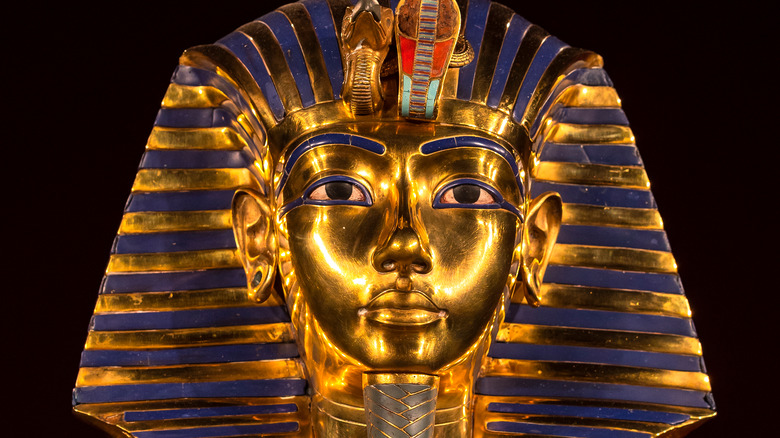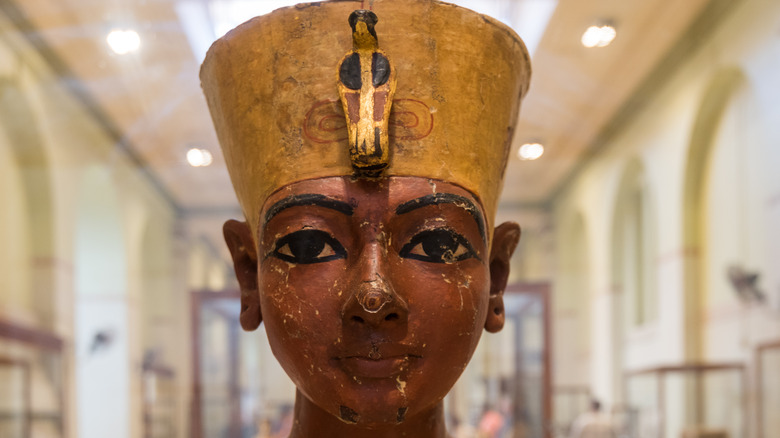How Did Pharaohs Become Pharaohs?
Few figures across history are as interesting as the pharaohs of ancient Egypt. Their ceremonial headdresses — which often feature a cobra jutting out at forehead level and a beard that appears as a downward pipe from the chin — are visually striking. These were people that ruled over an enormous empire that lasted for roughly 3,000 years.
For a time, the Egyptians called their ruler "king." But according to Gridclub, in 1552 B.C., they switched to calling them "pharaoh" due to their belief that they were a conduit with the divine. These rulers made their marks either with their military knowledge or by improving cities by decreeing certain architectural marvels be made. But how exactly were these people crowned in this position? Like many other monarchies, it usually came down to heritage — each pharaoh would basically be ordained at birth, per National Geographic. In some instances, someone might rule in their stead if they were considered too young when it became their time to rule. Sometimes it would even be through intrigue that would be worthy of any soap opera.
There were good and bad pharaohs throughout the Egyptian Empire's run
There were 170 pharaohs during the span of the Egyptian Empire, per History Hit. While most of them were male, there were some female pharaohs, too. Pharaoh Hatshepsut was one of them, and people might remember someone named Cleopatra VII, too. The latter was the last pharaoh before the marked decline of the Egyptian regime.
While pharaohs were viewed as being divinely chosen, the Egyptian pharaohs and their families proved to be all too human, capable of making errors in judgment and falling prey to political infighting. Indeed, the position sometimes bestowed a lot of power and responsibility on people who were just not that well-equipped to handle them. While Hatshepsut, Ramses II, and others did make positive impacts on history, others were more worthy of scorn. For example, World History notes that Pharaoh Psametik III let his army lose to save cats (the whole cat-worship thing in effect), and Pharaoh Pepi II would have his slaves lathered in honey to keep flies away from him (via Face2Face Africa). Well, it seems like every country's royalty has people who are a little off-kilter.
So that's how certain people wound up as the highest rulers of ancient Egypt. But while this worked for ancient Egyptians for some time, chances are very low that we will ever see the return of a pharaoh — unless it's "SNL" alumni Jay Pharoah.

